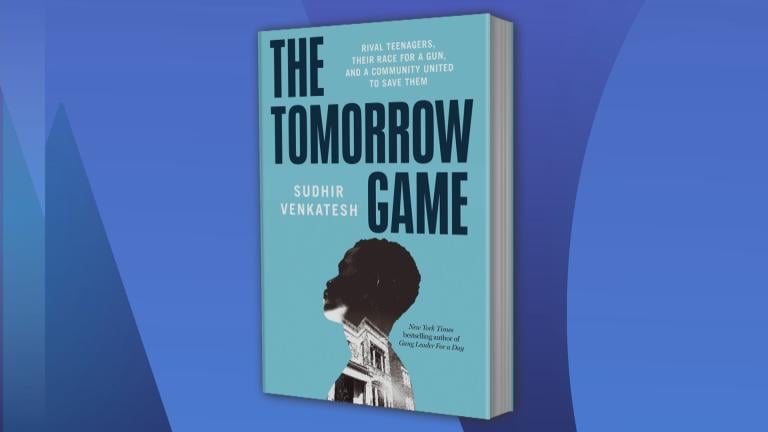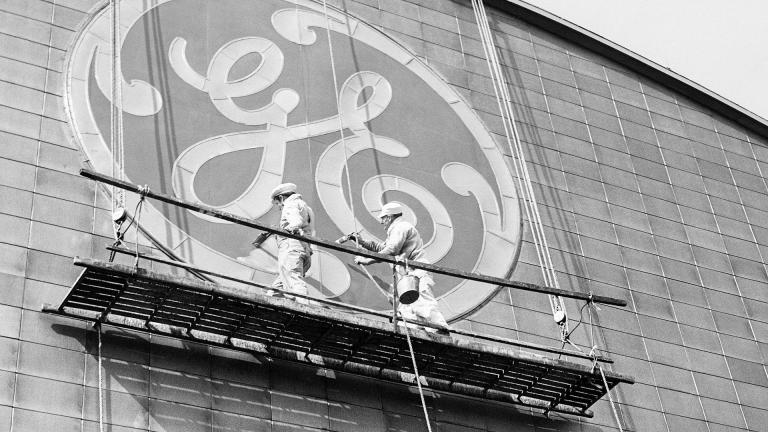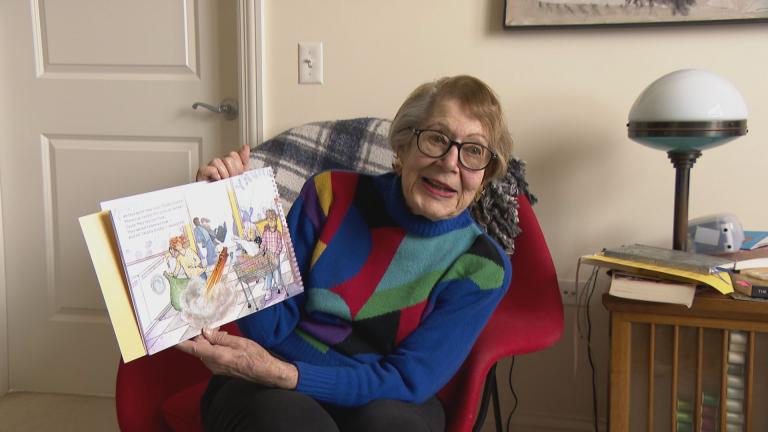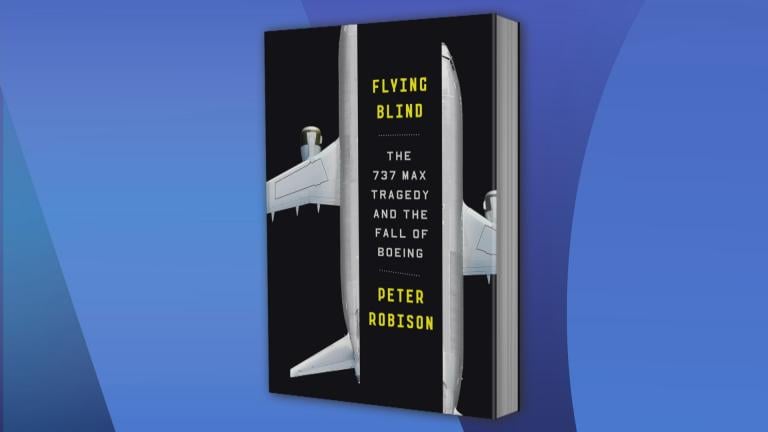Award-winning actor Christine Lahti has stepped seamlessly into many roles: a doctor, a mother on the run from the law, a World War II-era riveter, a district attorney.
In her new book, “True Stories from an Unreliable Eyewitness” she tells deeply personal stories from her own life as she learned to become comfortable in the role of a feminist making her way through life in and out of Hollywood.
Below, a Q&A with Lahti. You can also read an excerpt of the book and find out about area book signings this week.
![]()
The stories in the book aren’t in chronological order – how did you go about arranging them?
They’re in a kind of emotional chronological order in terms of my own awakening going from a kind of naiveté and, let’s say, unwoke place? To a kind of awakening as a feminist. That’s been my journey – a few steps forward, a couple of steps back, and I kind of pick myself up and go forward, which is kind of the point I guess.
How long did it take you to write?
About three years. Honestly, the tsunami of ageism hit me in show business. In terms of a time’s up movement is how underrepresented women are in our culture once they get past 50, or even 40. The lack of challenging interesting parts once I hit 50 was kind of shocking to me, even though I was obviously aware of ageism, but in terms of the sexist ageism, it didn’t affect my male actor friends, just my female friends who are 50 and up. My daughter said, what are you doing sitting around and moping about this ageism crap, why don’t you create your own stories? So I started developing them as monologues at first as I was thinking about a one-woman show. I honed them in front of live audiences, in bars and cabarets in New York and LA, and then it developed and morphed into a book. Now I’ll probably adapt the book into a real play, a real one-woman show. I really loved performing these as monologues and of course the monologue will be less descriptions and more dialogue-based.
Do you think you could have written a book like this 10 years ago?
The lens of age has changed things in that it took a long time for me to be completely honest and look at my life and the sort of peak moments of my life in an honest way and embrace my imperfections. In my 40s and 50s, I was still striving to be perfect, and this decade is like, who cares about these things?
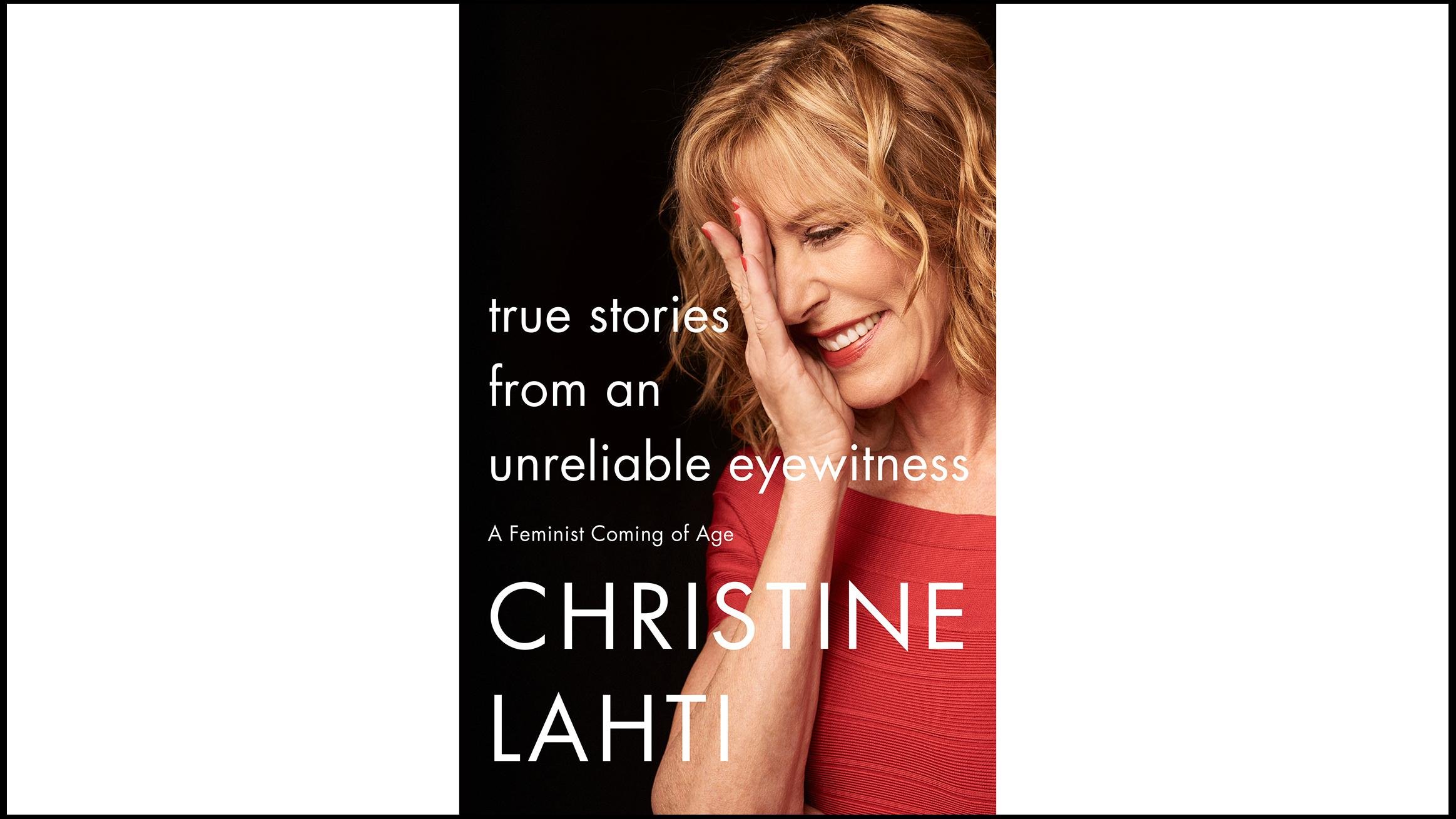
Can you explain the title?
How I got to the title of the book was, I recounted a rather traumatic childhood experience that I write about when my dad kicked my mom out of the car in Chicago over a cigarette. I talked to my sister and brother about that and they both said, “what? I don’t remember it like that.” Even though they were both in the car! It was something that was so traumatic to me, was probably to them wasn’t a big deal. It was just, OK, she wanted to finish her cigarette so he dropped her off and let her finish it and then he picked her back up again. But to me, it was horrific, like, I’m never going to see my mom again. I realized that my memories that I recount in this book are really my emotional memories – here’s the emotional goo that surrounds my memories and makes me who I am.
We’re seeing a wave of sexual harassment accusations wash through Hollywood, something you address in the book. What are your thoughts on the #MeToo and Time’s Up movements?
I’ve been dreaming about this my whole life! The fact that it’s happening with such a force and a kind of reckoning is so brilliant to me. I’m cautiously optimistic. But I also witnessed Anita Hill during that time, the Anita Hill hearings. And up until then there was never even a word for it, it was just sort of the way things were. I remember watching that just riveted, thinking everything’s going to change now, we’ve got a word for it, and it’s not okay, this previously sort of thought to be acceptable behavior is not ok. And unfortunately things didn’t change that much after that, but this time it feels different. I think social media has helped that, women are telling their stories and being believed. It’s a really exciting time, and I hope women will continue to speak up and men will be more mindful.
Do you think that the movements will result in women creating more content in Hollywood and moving into more leadership roles?
That’s why I wrote this book. I was feeling in such a dependent, passive role, and that’s when my fiercely feminist daughter said to me, why are you sitting around waiting for men to hire you? You can do your own stuff. And she’s right! And it felt so empowering to be creative without having to be dependent on some man, mostly, hiring or deciding whether I was fuckable or whatever. I think that Hollywood has been historically white men producing, directing, and telling stories about white men. And this seismic shift we’re all feeling, hopefully, women and people of color will start telling their stories because those stories need to be told. I’m currently developing a half-hour dramedy about a woman in her late 50s who has been told she should be put out to pasture, and she’s doing everything she can to stay visible. We don’t see many of those shows on television – there’s one show on TV about older women now, it’s Grace and Frankie, and it’s wonderful! We need more shows like that on television. It’s so misguided to expect everyone to relate to men who want to crash cars and burn buildings and annihilate people, but when a movie is about women, it’s called a chick flick, it’s not really universal because it’s about women.
What are you hoping readers will take away from your book?
I’m hoping that people, women in particular, but men too, that by embracing your imperfections and allowing yourself to appreciate your mistakes and your failures, that there’s something very positive about that. And I really tried – my daughter said more honest, go deeper – and she was right, but it was a struggle for me. It was really important that I be as authentic and vulnerable and I hope the takeaway that that’s not a scary place to be. I survived, I wrote this book, and being able to admit that kind of vulnerability and imperfection can be a really positive. There’s something about having a sense of humor about yourself – having that sort of self-deprecating humor – I had strived for that, but there was something in me that was always like, oh god, they don’t like me, I’m not getting their approval. And now it’s like, I’m relaxing into being authentic and not giving a shit. I’m not totally there – I still care about approval, I feel like this was, to me, a step in that direction.
![]()
Love scenes can definitely get confusing. Even though you're speaking written lines to a virtual stranger, you can't fake it; you really have to find those feelings. In fact, in my opinion, every emotion has to be real; you can't just pretend to be angry, joyful, sad, or lustful, you've got to really go there. I've often been asked, "How do you not fall in love with your costar? Don't fiction and reality ever get confused?”
Sometimes, yes. One time in particular the lines blurred precariously.
On location in Toronto, my coactor and I had several physically intimate scenes together. One of them involved me throwing him down on the bed, jumping on top of him , and ripping off his clothes. This guy was charming, good-looking, and extremely professional. But after we'd wrapped one night, we went out to dinner and the touching didn't stop. We kissed without any cameras rolling. That scared the shit out of me. Not only was that unprofessional, but I had never been unfaithful to my husband in the twenty years of our marriage .
What I adored about this guy was that by all accounts, he appeared to adore me. Or his character did. I didn't know. I didn't care. Either way, he put me high on a pedestal, and the view from up there was fan-fucking-tastic.
The truth is, being on a film set is like swimming in a pool of adoration. You have hair, makeup, and wardrobe people constantly preening over you, ADs who will fetch you anything your heart desires. A bottle of water? Sure! Cold or room temp? With or without a straw? Oatmeal made with water or whole, 2 percent, skim, or almond milk? There are countless crew people who sing your praises after virtually every scene, even if you sucked. Makeup artists will tell you how ravishingly beautiful the lighting is for your close-up, even though they're lying through their teeth. It's heaven on earth, if it's attention you crave. At that time in my marriage, I was feeling a bit taken for granted. Tommy and I weren't prioritizing each other; both of us were working constantly and not spending much time together. But before we got married, we had made a pact that if either of us ever had an inclination to have an affair, we would first try taking the unfulfilled need back to each other. So I did.
I said a quick good night to my hot-to-trot costar. As soon as I got back home, I knew I had to confess my near affair with my husband. But I felt nervous. Even though he had never been the jealous, possessive type, of course the news would be hurtful. But first I had to figure out what exactly I was missing in my relationship with him.
"So, Tommy, all we did was kiss once, but I was very attracted to him and I'm not sure why. I feel terrible and like I cheated on you, and I'm really, really sorry."
There was a pause. Then he said softly, "Yeah, so am I."
He looked away from me.
"Well, what I think I need and am not getting enough of from you is ... um ... well, I wish you adored me more, or at least actively appreciated me more."
Tommy said he thought he understood. We didn't speak much the rest of that day or night. He spent a lot of time in front of the TV, watching football. Our normal easy humor evaporated.
Then the next morning he brought me breakfast in bed and rubbed my feet. There was much unsolicited affection throughout the day. He showered me with compliments, and most of them sounded sincere. I think he even washed my car.
All this lavish attention lasted a good solid . . . week. We both ended up feeling silly, like we'd been playing parts in a bad romcom. But fortunately, by that point it had dawned on me that I didn't really need adulation from my husband. I could save that need for award shows, for fawning hosts of talk shows, or for the next time I worked on a film set.
So here's what I wish they'd taught me and my fellow actors in my fantasy love scene class: Sex scenes are going to be uncomfortable, so you need to speak up if there's a boundary issue. Keep it sexy; forcibly doing anything never is. Always carry Binaca, and stay awake. Most importantly, no matter how lucky we are to get to do them sometimes, or how exciting they can be, leave them on the set.
I almost jeopardized my marriage because I confused being adored with being loved. That's like confusing Reddiwip with homemade whipped cream. Or the "Eiffel Tower" in Las Vegas with the real one in Paris.
It's still nice when once in a while Tommy brings me flowers or kisses my skin as if it's a rose petal. But in the real world, a little of that goes a very long way.
Upcoming events:
Lahti signs copies of her book Thursday afternoon at the Book Stall in Winnetka (1 p.m.) and Thursday evening at the Swedish American Museum in Chicago (7 p.m.).
Related stories:
‘The Humans’ Revisits Chicago with Actors Richard Thomas, Pamela Reed
Actor Geraldine Chaplin Reflects on Lengthy Film Career
Is Our Cultural Obsession with Beauty Making Us Sick?

